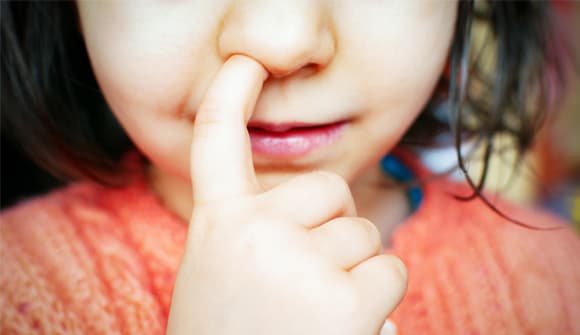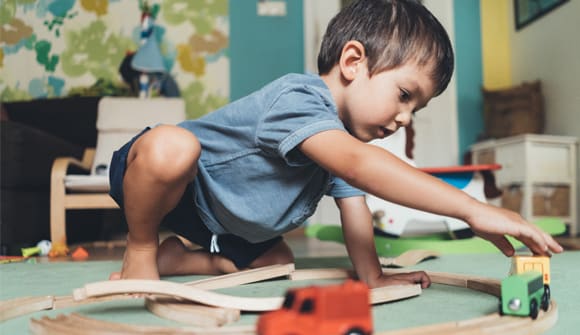Big behaviors in little kids
What are common "bad" habits in children?
Article Author: Beverly Wong-Ken
Article Date:

Any parent can tell you that as little ones grow, new habits and behaviors appear. Some of them are harmless while others may be more concerning. Jeffry Jacqmein, MD, a family medicine physician with Baptist Primary Care, explained what constitutes a “bad” habit in children and the importance of rectifying these behaviors in early childhood.
Q: What are some of the most common habits in children?
A: “In infants and young babies, I often see finger sucking, nose picking, nail biting and temper tantrums. As children move into kindergarten, habits such as biting, lying, toy throwing, yelling or even inappropriate screen time may develop.”
Q: What causes these behaviors?
A: “Some habits are not atypical in child development, especially infant finger sucking, body rocking, head banging, drooling, lip-licking and teeth grinding. These are often used to help the child cope with stress or attract attention,” Dr. Jacqmein said. “However, as children age beyond six years old, these types of behaviors can turn into low-grade health risks. For example, thumb sucking and teeth grinding may lead to a jaw or palate impairment which could affect speech and dental alignment. Some of these behaviors may also be socially inappropriate as the child ages.”
He added, “For more destructive habits like biting and lying, there may be more than one root cause. Underlying stress and anxiety, mimicked behavior, competition, attention-seeking and enabling by parents or caregivers are all possible contributions.”
Q: When should parents intervene?
A: “Parents often have some idea about when a habit is becoming detrimental,” Dr. Jacqmein said. “By combining confidence, love and positive affirmation with mature psychology and distraction, most bad habits can be reversed.”
He added, “Like with many health conditions, it is best to seek help if bad habits continue despite initial and early efforts, as some habits like thumb sucking and teeth grinding will start to interfere with normal development. Others, like nose picking and yelling, can compromise social development. When families come to me for help, we work as a team to strategize a home plan and investigate to see if any underlying issue exists.”
Q: How can parents help prevent bad habits in their children?
A: “The best way for parents to modify or prevent bad habits is to work towards a close relationship with their child,” Dr. Jacqmein recommended, “At each stage, they should dedicate time to playing with their child and being present during mealtime. It’s also critically important to invest in nutritious foods and avoid sugary beverages and snacks which will encourage adequate sleep.
Lastly, children sometimes recognize when their parents are overly stressed. It’s important for parents to also try and maintain balance through great nutrition, exercise and sufficient sleep.”
If you’re worried about your child’s habits or behaviors, a pediatrician can help determine the right course of action. To find the right pediatrician for your family, call 904.202.4968.



